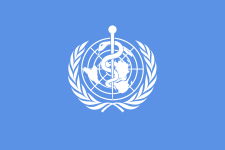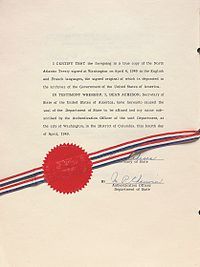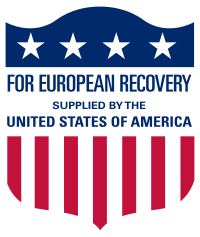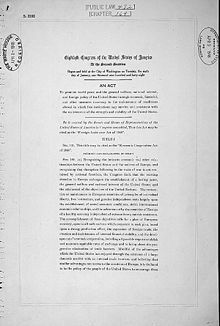This is your morning Open Thread. Pour your favorite beverage and review the past and comment on the future.
Find the past “On This Day in History” here.
April 5 is the 95th day of the year (96th in leap years) in the Gregorian calendar. There are 270 days remaining until the end of the year.
 On this day in 1774, Benjamin Franklin publishes “An Open Letter to Lord North”.
On this day in 1774, Benjamin Franklin publishes “An Open Letter to Lord North”.
On this day in 1774, Benjamin Franklin writes an open letter to Great Britain’s prime minister, Frederick, Lord North, from the Smyrna Coffee House in London. It was published in The Public Advertiser, a British newspaper, on April 15, 1774.
Franklin’s tongue-in-cheek letter suggested that the British impose martial law upon the colonies and appoint a “King’s Viceroy of all North America.” Franklin satirically went on to suggest that such centralized power over “Yankee Doodles,” who had “degenerated to such a Degree” from their British ancestors, “that one born in Britain is equal to twenty Americans,” would allow the crown to collect its taxes, then sell their impoverished colonies and colonists to Spain.
Smyrna Coffee House on St. James Street in London had been a meeting place of Whigs, or political liberals, since the 17th century. For Franklin to sign a letter drafted at Smyrna’s “A Friend of Military Government” was an obvious use of irony. The details of his purported plan for a military government, including the exclusive use of military courts in colonies known for their commitment to trial by jury, and “One Hundred to a Thousand Lashes in a frosty Morning” for offenders made Franklin s disdain for Lord North and his heavy-handed tactics clear.
An Open Letter to Lord North
For The Public Advertiser.
To Lord North.
My LORD, All your small Politicians, who are very numerous in the English Nation, from the patriotic Barber to the patriotic Peer, when big with their Schemes for the Good of poor Old England, imagine they have a Right to give Advice to the Minister, and condemn Administration if they do not adopt their Plan. I, my Lord, who have no mean Opinion of my Abilities, which is justified by the Attention that is paid to me when I harangue at the Smyrna and Old Slaughter’s, am willing to contribute my Mite to the public Welfare; and have a Proposal to make to your Lordship, which I flatter myself will be approved of by the Ministry, and if carried into Execution, will quiet all the Disturbances in America, procure a decent Revenue from our Colonies, make our royal Master (at least there) a King de facto, as well as de jure; and finally, as it may be managed, procure a round Sum towards discharging the national Debt.
My Scheme is, without Delay to introduce into North America a Government absolutely and entirely Military. The Opposition which some People suspect would be made by the Colonies, is a mere Bugbear: The Sight of a few Regiments of bold Britons, appearing with Ensigns displayed, and in all the Pomp of War, a Specimen of which may be seen every Summer at the Grand Review on Wimbledon Common, with that great Commander G —— l G —— e at their Head, accompanied with a Detachment from the Artillery, and Half a Dozen short Sixes, would so intimidate the Americans, that the General might march through the whole Continent of North America, and would have little else to do but to accept of the Submission of the several Towns as he passed. But as the Honour would be too great for one Man to reduce to absolute Subjection so great an Extent of Territory, I would propose that a separate Command be given to L —— d G —- G —— e, who by his animated Speeches in the House, and coinciding so entirely with your Lordship’s Opinion on the proper Methods for humbling America, deserves a Share in the Fame of such a grand Exploit. Let him have one half of the Army under his Direction, and march from New York to South Carolina. No one can object to the Nomination, as his Military Prowess is upon Record. The Regiments that are in America, with those who are about to embark, will be amply sufficient, without being at the Expence of sending more Troops. Those who served in America the last War, know that the Colonists are a dastardly Set of Poltroons; and though they are descended from British Ancestors, they are degenerated to such a Degree, that one born in Britain is equal to twenty Americans. The Yankey Doodles have a Phrase when they are not in a Humour for fighting, which is become proverbial, I don’t feel bould To-day. When they make this Declaration, there is no prevailing on them to attack the Enemy or defend themselves. If contrary to Expectation they should attempt an Opposition, procure Intelligence when it happens not to be their fighting Day, attack them and they will fly like Sheep pursued by a Wolf. When all North America have thus bent their Neck to the Yoke designed for them, I would propose that the Method made use of by the Planters in the West Indies may be adopted, who appoint what they call a Negro Driver, who is chosen from among the Slaves. It is observed that the little Authority that is given him over his Fellow Slaves, attaches him to his Master’s Interest, and his Cruelty would be without Bounds were he not restrained; but the Master is certain, that the utmost Exertion of Strength will be exacted by this cruel Task-master for the Proprietor’s Emolument. Let all the Colonists be enrolled in the Militia, subject of course to Martial Law. Appoint a certain Number of Officers from among the conquered People, with good Pay, and other Military Emoluments; they will secure their Obedience in the District where they command. Let no other Courts be allowed through the whole Continent but Courts Martial. An Inhabitant, who disobeys an Order, may by a Court Martial be sentenced to receive from One Hundred to a Thousand Lashes in a frosty Morning, according to the Nature of his Offence. Where Punishment is thus secure, this Advantage will accrue, that there will not be the same Necessity of hanging up so many poor Devils as in this free Country; by which Means the Service of many an able Man is lost to the Community. I humbly propose that the General and Commander in Chief be vested with the Power, and called by the Name of the King’s Viceroy of all North America. This will serve to impress the Americans with greater Respect for the first Magistrate, and have a Tendency to secure their Submission. All Orders issuing from this supreme Authority to have the Force of Laws. After this happy Change of Government, how easy to collect what Taxes you please in North America. When the Colonists are drained of their last Shilling, suppose they should be sold to the best Bidder. As they lie convenient for France or Spain, it may be reasonably expected one of those little Powers would be a Purchaser. I think Spain is to be preferred, as their Power hath more of the Ready than France. I will venture a Conjecture, that the Ministry might get at least Two Millions for the Soil, and the People upon it. With such a Sum what glorious Things might he not atchieve! Suppose it should be applied towards the Payment of one hundredth Part of the National Debt, I would give him an Opportunity of drawing down upon him the Blessing of the Poor by making him to take off the Halfpenny Duty on Porter. Considering the probable Stability of the present Ministry, this Honour may be reserved for your Lordship.
My Lord, excuse the Crudity of these indigested Hints, which your Wisdom is so capable of improving; and believe me, with infinite Respect, Your Lordship’s Most obedient Humble Servant, A Friend to Military Government.
Smyrna Coffee-House, April 5.
The Public Advertiser, April 15, 1774


 On this day in 1948,
On this day in 1948,  On this day in 1896,
On this day in 1896,  On this day in 1774,
On this day in 1774, 
 On this day in 1948,
On this day in 1948, 
 On this day in 1513, Ponce de Leon discovers Florida. Near present-day St. Augustine, Spanish explorer
On this day in 1513, Ponce de Leon discovers Florida. Near present-day St. Augustine, Spanish explorer
Recent Comments